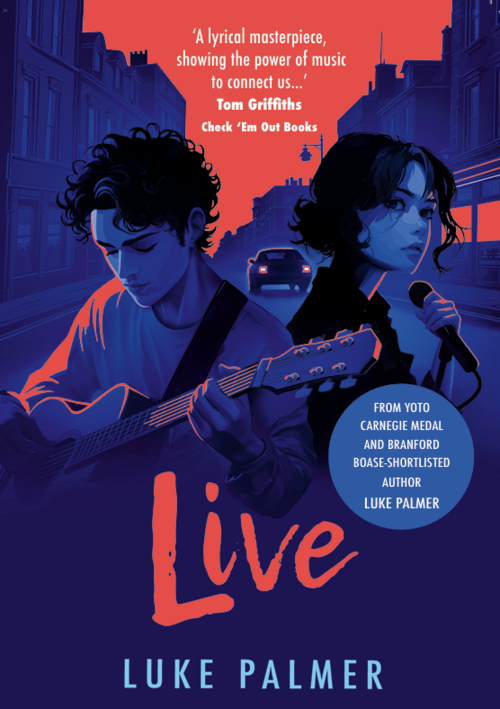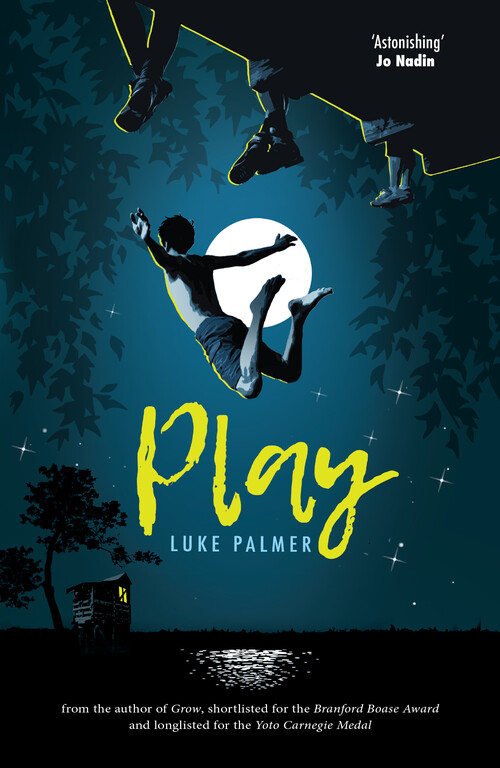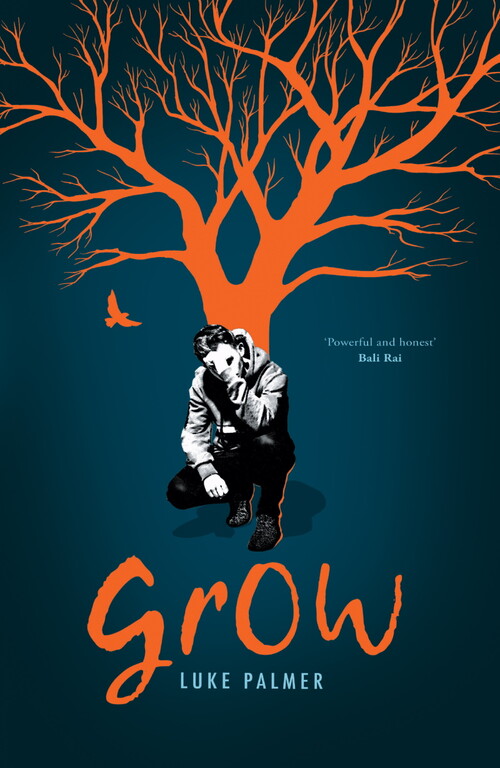Available for
Workshop, Talk, ReadingAudiences
Age 11 to 14, Age 14 to 16, Age 16 to 18+Genres
Fiction, PoetryBook types
Fiction for young-adults, Young AdultAwards
- Carnegie Medal 2025 - Shortlist
- Carnegie Medal 2022 - longlist
- Branford Boase Award 2022 - shortlist
Details
I wrote Grow, my Carnegie long-listed, debut novel, after lots of conversations I was having with young people about anger and how this can lead to radicalisation. You can read more about that here. My second novel, Play, was shortlisted for the 2025 Carnegie medal and explores the nuances of masculine identities between four friends after one of them falls into a county lines drug smuggling operation. Written after nearly two decades in the classroom, it looks at masculine identities, coming of age, vulnerability, strength, consent around drug taking and sex, and much else in between. My third novel, Live, explores grief and the power of music to bring people together. My debut poetry collection, Homunculus, was released in early 2024.
I offer talks/assemblies about my books and the issues they touch on, my journey as an author and poet and the importance of reading in building empathy. I give readings and workshops across fiction and poetry to all stages of the secondary pathway.
My experience as an English teacher means I can tailor sessions to your students' context and slot in with curriculum if/where necessary. For example, here's four standalone resource suitable for students preparing for AQA English Language Paper 1, based on Grow.
Below are a few example of workshops I have run in schools. Please do get in touch to discuss how I could add value to your curriculum.
Destructive Writing
In this session, we look at how destruction can be very useful to the creative process. Based on the idea that good people can sometimes do bad things, and how the line between what makes 'good' and 'bad' is often pretty blurry, we'll use a range of 'minor misdemeanours' to explore the ins and outs of these ideas in prose, and maybe start tapping at the edges of those issues in our society which define us as either 'good' or 'bad'... whatever that means! A great, scaffolded workshop for less confident writers, and can be very useful for GCSE preparation.
Playful writing
In this light and lively session, we'll look at ways of playing with words and how this can often lead to pretty deep places. Looking at techniques from the surrealists amongst others, this workshop promises engagement in a fast and often irreverent way, ideal for all levels of writers.
Intense Noticing
This session, useful for poetry and prose writing, begins with the object. For centuries, writers have sought new ways of looking at the world around them, seeking fresh perspectives to illuminate new 'truths' (!). We'll at some of those ways to bring novelty to the things that surround us everyday.
Event feedback
Luke as always was amazing! From the initial assembly to 270 Year 9, to the smaller groups all day, he was entertaining, informative and inspirational. Our students love meeting him, and gain such a lot from developing their understanding of writing. Inserting "Grow" into our Year 9 curriculum was forward thinking, and it always pays off.
Books by Luke Palmer

Live

Play


